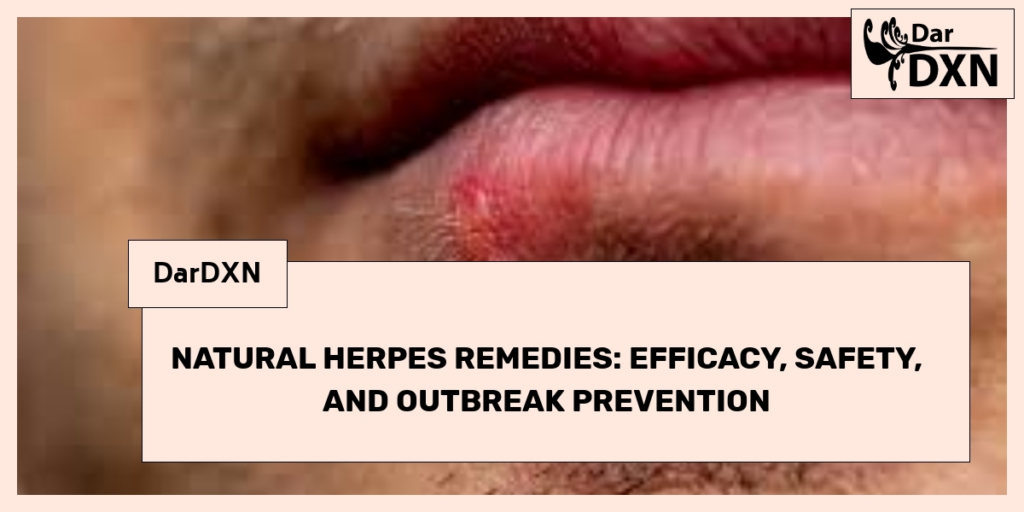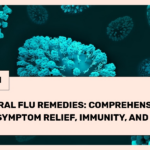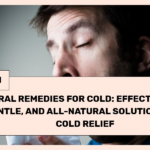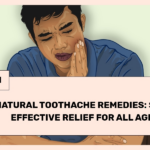Widely available natural remedies can effectively alleviate and prevent herpes outbreaks. These remedies harness the power of nature to treat different types of herpes, including genital, facial, and lip herpes. Essential oils, topical creams, and immune-boosting remedies soothe sores, prevent recurrent outbreaks, and work alongside stress reduction techniques. It is important to consider potential side effects and interactions with prescription medications when using natural remedies. However, the benefits of these remedies include blister prevention and reduced pain during outbreaks compared to conventional medications.
What are the different types of natural remedies available for herpes?
“Natural remedies for herpes include herbal supplements, essential oils, and dietary changes. Herbal supplements like echinacea, garlic, and licorice root have antiviral properties that can reduce the severity and frequency of outbreaks. These supplements can be taken orally or applied topically as creams or ointments.
Essential oils such as tea tree oil, lemon balm oil, and oregano oil also have antiviral properties. They can be applied topically to the affected area, but it’s important to dilute them to avoid skin irritation.
Dietary changes can help manage herpes outbreaks. Foods rich in lysine, like fish, chicken, and dairy products, inhibit the replication of the herpes virus. Conversely, foods high in arginine, like chocolate, nuts, and seeds, should be limited as they can trigger outbreaks.
Consulting with a healthcare professional is important before trying any new treatment, especially if you are already taking medication for herpes.”
How can natural remedies be used at home to alleviate genital herpes symptoms?
Genital herpes, caused by the herpes simplex virus (HSV), is a common sexually transmitted infection. While antiviral medications are typically prescribed for managing outbreaks, there are natural remedies that can be used at home to alleviate symptoms. To reduce pain and inflammation, apply ice packs or cool compresses to the affected area. Taking warm baths with Epsom salt or baking soda can help dry out the sores and provide relief. Topically applying aloe vera gel or tea tree oil can soothe the skin and promote healing. Making dietary changes, such as consuming lysine-rich foods and avoiding arginine-rich foods, may also help in managing outbreaks. However, it is important to note that natural remedies do not cure genital herpes, so consulting a healthcare professional is always recommended for proper diagnosis and treatment options.
What natural remedies are effective in managing herpes breakouts?
To manage herpes breakouts effectively, you can apply ice packs or cold compresses to reduce inflammation and pain. Taking lysine supplements promotes healing and prevents outbreaks. Aloe vera gel soothes and heals the skin, while practicing good hygiene prevents the spread of the virus. Avoiding triggers like stress, excessive sunlight exposure, and certain foods also helps manage herpes breakouts. It’s important to note that these natural remedies provide relief and support healing, but they may not completely eliminate the virus or prevent future outbreaks. For a comprehensive approach, consult a healthcare professional who may recommend antiviral medications alongside natural remedies.
How can natural remedies help in preventing herpes outbreaks?
Boosting the immune system and reducing the frequency and severity of outbreaks can be achieved with natural remedies for preventing herpes outbreaks. Lysine, lemon balm, and tea tree oil are natural remedies with antiviral properties that suppress the herpes virus. These remedies can be applied topically or taken orally to reduce virus replication and alleviate symptoms. Maintaining a healthy lifestyle, including a balanced diet, regular exercise, and stress management, also supports the immune system and reduces outbreak risk. However, it is important to note that natural remedies should not replace medical treatment or prescribed antiviral medications. Consulting with a healthcare professional before starting any natural remedies or making changes to your treatment plan is always recommended.
What are the most effective natural remedies for healing herpes?
Using antiviral herbs like lemon balm, echinacea, and licorice root is the most effective natural remedy for healing herpes. Lemon balm has strong antiviral properties that can reduce the duration and severity of outbreaks. Boosting the immune system with echinacea helps fight off viral infections, including herpes. Licorice root contains glycyrrhizin, a compound that inhibits the replication of the herpes virus. Other remedies for relief include applying aloe vera gel, using tea tree oil, and taking lysine supplements. Aloe vera soothes discomfort, tea tree oil has antiviral properties when applied topically, and lysine prevents virus replication. It is important to note that these remedies manage symptoms but cannot cure herpes. Seek medical treatment for proper diagnosis and management.
How do herbal remedies harness the power of nature to treat herpes?
“The power of nature is harnessed in herbal remedies for herpes, utilizing certain plants and herbs’ medicinal properties. These remedies contain natural compounds with antiviral, anti-inflammatory, and immune-boosting properties.
For instance, lemon balm, tea tree oil, and aloe vera have demonstrated antiviral activity against the herpes virus. Lemon balm contains rosmarinic acid, inhibiting virus replication. Tea tree oil possesses strong antiviral properties, reducing outbreak duration and severity. Aloe vera offers soothing and anti-inflammatory effects, relieving discomfort and pain from herpes sores.
Furthermore, herbal remedies can support the immune system, crucial in controlling the herpes virus. Echinacea, astragalus, and garlic are known for immune-boosting properties, strengthening the body’s defense against the virus.
In summary, herbal remedies for herpes utilize plants and herbs’ natural healing properties to provide symptom relief and support the body’s immune response against the virus.”
What are the most effective natural remedies for managing herpes type 1?
“Managing herpes type 1 effectively involves maintaining a healthy lifestyle, managing stress levels, and using herbal and homeopathic remedies.
Herpes type 1 is a viral infection that causes cold sores or fever blisters around the mouth and lips. Natural remedies can help manage symptoms and reduce outbreak frequency, although there is no cure for herpes.
Managing herpes type 1 requires a healthy lifestyle. This includes eating a balanced diet, exercising regularly, and getting enough sleep. A strong immune system can prevent outbreaks and reduce their severity.
Managing stress levels is crucial as stress can trigger herpes outbreaks. Engaging in stress-reducing activities like meditation, yoga, or deep breathing exercises can be helpful.
Certain herbal remedies, such as lemon balm, tea tree oil, and aloe vera, have antiviral properties that soothe and heal cold sores. Homeopathic remedies like Natrum muriaticum and Rhus toxicodendron are also believed to help manage herpes symptoms.
It’s important to note that natural remedies may not work for everyone. Consulting with a healthcare professional is recommended for proper diagnosis and treatment options.”
Which natural solutions are effective for treating herpes type 2?
Effective natural solutions for treating herpes type 2 include lemon balm and echinacea, antiviral herbs. Aloe vera gel or tea tree oil can be applied topically to the affected area. These remedies can help alleviate symptoms and reduce outbreak frequency, but they cannot cure the virus. Maintaining a healthy lifestyle, including a balanced diet, regular exercise, and stress management, is recommended to minimize outbreak severity and frequency. Practicing safe sex and using condoms can prevent virus transmission. Consulting with a healthcare professional is important before trying any natural remedies for personalized advice and guidance.
What are the most effective natural remedies for treating facial herpes?
The most effective natural remedies for facial herpes include applying ice packs, using lemon balm, applying aloe vera gel, and consuming lysine-rich foods. Pain and inflammation associated with facial herpes outbreaks can be reduced by using ice packs. Lemon balm, whether applied topically or consumed as a tea, has antiviral properties that can speed up healing and reduce outbreak frequency. Aloe vera gel can soothe and promote healing of the affected area. Consuming lysine-rich foods like dairy products, fish, and legumes can inhibit the replication of the herpes virus. It is important to note that these natural remedies can alleviate symptoms and promote healing, but they are not a substitute for medical treatment. Consult a healthcare professional for proper diagnosis and treatment of facial herpes.
Which natural remedies provide relief for lip herpes?
“Applying aloe vera gel can alleviate discomfort and inflammation associated with lip herpes. Lemon balm speeds up the healing process due to its antiviral properties. Tea tree oil fights the herpes virus and reduces symptoms. Lysine inhibits the replication of the virus, preventing outbreaks or reducing their severity. Ice packs reduce pain and swelling.
These natural remedies provide relief for lip herpes, but they may not eliminate the virus or prevent future outbreaks. Consult a healthcare professional for proper diagnosis and treatment options.”
How can natural remedies provide relief for mouth herpes?
Mouth herpes can be relieved and healed with natural remedies. One effective remedy is applying aloe vera gel directly to the affected area to soothe pain, reduce redness, and swelling. Another remedy is using a cold compress or ice pack to numb the area and alleviate discomfort, which can also shorten the outbreak. Lemon balm or tea tree oil can be applied to the blisters to dry them out and speed up healing. These remedies can be applied topically multiple times a day for best results. It is important to consult a healthcare professional for a proper diagnosis and to discuss treatment options, as natural remedies may not completely eliminate the virus or prevent future outbreaks.
What are the most effective natural remedies for treating herpes zoster?
The most effective natural remedies for treating herpes zoster, also known as shingles, include apple cider vinegar, aloe vera gel, lysine supplements, and capsaicin cream. Apple cider vinegar has antiviral properties that can reduce the severity and duration of shingles outbreaks. Aloe vera gel soothes the affected area and promotes healing. Lysine, an amino acid, suppresses the replication of the herpes virus. Taking lysine supplements or increasing lysine-rich foods in the diet is beneficial. Capsaicin cream, derived from chili peppers, provides pain relief and reduces itching and burning sensation associated with shingles. These natural remedies provide relief, but they do not replace medical treatment. It is recommended to consult with a healthcare professional for a comprehensive treatment plan.
How can natural remedies soothe the sores caused by herpes?
Natural remedies can soothe herpes sores by reducing inflammation, promoting healing, and relieving pain. To reduce inflammation and numb the pain, apply ice packs or cold compresses. Aloe vera gel can be applied topically to soothe the sores and promote healing. To alleviate pain and aid in healing, use a warm saltwater rinse or apply a salt paste. Speed up the healing process by applying tea tree oil and lemon balm extract, both of which have antiviral properties. Consuming lysine-rich foods like yogurt, fish, and legumes can help reduce the frequency and severity of herpes outbreaks. However, it’s important to consult a healthcare professional for proper diagnosis and treatment options as natural remedies may not completely cure herpes.
How do essential oils contribute to the treatment of herpes outbreaks?
Essential oils have antiviral properties that can inhibit the replication of the herpes virus, making them useful in treating herpes outbreaks. Tea tree oil, for example, has strong antiviral effects against the herpes simplex virus. Applying these oils topically to the affected area can reduce the severity and duration of outbreaks. In addition, essential oils have soothing and anti-inflammatory properties that can provide relief from discomfort, itching, and pain. Lavender oil, for instance, promotes healing and prevents scarring. It is important to note, however, that essential oils should not replace medical treatment. They can be used alongside prescribed antiviral medications to manage and alleviate symptoms. Consulting with a healthcare professional before using essential oils for herpes treatment is crucial to ensure proper usage and avoid any potential adverse effects.
How do topical creams and ointments made from natural ingredients help in healing herpes sores?
“Topical creams and ointments made from natural ingredients can help in healing herpes sores. They provide relief from symptoms, reduce inflammation, and promote the healing process. Aloe vera, tea tree oil, and lemon balm are natural ingredients with antiviral, anti-inflammatory, and soothing properties that can manage herpes outbreaks.
Aloe vera has antiviral properties, reducing the duration and severity of herpes outbreaks. It also soothes the skin, relieving itching and pain from the sores. Tea tree oil has antiviral and anti-inflammatory properties, reducing inflammation and preventing secondary infections. Lemon balm has antiviral activity against the herpes simplex virus, speeding up the healing process.
In summary, topical creams and ointments made from natural ingredients offer a holistic approach to managing herpes outbreaks. They address symptoms, reduce inflammation, and promote healing. However, it is important to note that these remedies may not cure herpes completely. They can only manage symptoms and reduce the frequency and severity of outbreaks. Consult a healthcare professional for proper diagnosis and treatment.”
What role do immune-boosting natural remedies play in preventing recurrent herpes outbreaks?
“Supportive in preventing recurrent herpes outbreaks, immune-boosting natural remedies strengthen the body’s immune system responsible for fighting off the herpes virus. Natural remedies believed to boost the immune system include consuming foods rich in vitamins C and E, such as citrus fruits and nuts, and taking supplements like echinacea and garlic. Regular exercise, stress management techniques, and sufficient sleep also support a healthy immune system.
It is important to note that immune-boosting natural remedies are not a guaranteed solution for preventing recurrent herpes outbreaks. Despite a strong immune system, outbreaks can still occur as herpes can remain in the body without symptoms. Therefore, it is recommended to follow medical treatments prescribed by healthcare professionals to manage and prevent herpes outbreaks. These treatments may include antiviral medications to reduce outbreak frequency and severity.”
How can stress reduction techniques and natural remedies work together to manage herpes?
Stress reduction techniques, such as meditation, deep breathing exercises, and regular exercise, can lower stress levels and potentially decrease the likelihood of herpes outbreaks. Implementing these techniques in conjunction with natural remedies like lysine, a supplement that inhibits the replication of the herpes virus, can help manage the condition. Lysine can be taken orally or applied topically to affected areas to reduce the duration and intensity of outbreaks. Certain herbs like echinacea and lemon balm, which have antiviral properties, can also support the immune system and reduce the frequency of outbreaks. It is important to consult with a healthcare professional for proper diagnosis and treatment, as stress reduction techniques and natural remedies are not a cure for herpes.
What are the natural remedies available for herpes in pregnant women?
Using ice packs or cold compresses can reduce pain and inflammation caused by herpes in pregnant women. To soothe the affected area, taking warm baths with Epsom salt is recommended. Aloe vera gel can promote healing, while lemon balm or tea tree oil can be applied topically to reduce symptoms. However, it is important to consult with a healthcare professional before trying any natural remedies. This is because they may interact with other medications or have potential risks during pregnancy. Herpes is a viral infection that causes painful sores or blisters on the genitals or mouth. It is transmitted through sexual contact and can pose risks to both the mother and the baby. While antiviral medications can help manage symptoms and reduce transmission, some pregnant women may consider natural remedies. It should be noted that natural remedies may not be as effective as antiviral medications and their safety during pregnancy is not well-studied. Therefore, consulting with a healthcare provider before trying any natural remedies for herpes is crucial.
How do natural remedies for herpes interact with prescription medications?
Natural remedies for herpes can potentially interact with prescription medications in several ways. Herbal supplements or essential oils, for example, may have similar effects to certain medications, increasing the risk of side effects or adverse reactions when taken together. Natural remedies can also interfere with the absorption, metabolism, or elimination of prescription medications, affecting their effectiveness or increasing the risk of toxicity. To ensure safety and compatibility, consult with a healthcare professional before using natural remedies for herpes alongside prescription medications. They can provide guidance on potential interactions and help determine the best course of treatment. Disclose all medications, including natural remedies, to your healthcare provider for appropriate advice and to avoid potential harm.
What is the efficacy of natural remedies in treating herpes outbreaks?
“The efficacy of natural remedies in treating herpes outbreaks is not well-supported by scientific evidence and is variable. Limited research suggests that they can effectively treat or prevent herpes outbreaks, and some may provide symptomatic relief.
Herpes is a viral infection caused by the herpes simplex virus (HSV) and can cause recurrent outbreaks of painful sores or blisters. To manage herpes outbreaks and reduce their duration and severity, healthcare professionals commonly prescribe antiviral medications like acyclovir. These medications have been extensively studied and proven effective in treating herpes.
However, natural remedies often lack rigorous scientific research to support their efficacy. Some commonly suggested natural remedies for herpes outbreaks include applying aloe vera gel, using lemon balm extract, or taking supplements like lysine or zinc. While there may be anecdotal evidence or limited studies suggesting their potential benefits, more research is needed to establish their effectiveness.
Before using any natural remedies for herpes outbreaks, it is important to consult with a healthcare professional. Natural remedies may interact with medications or have potential side effects.”
How can natural antiviral remedies be utilized to combat herpes?
“To combat herpes, you can utilize natural antiviral remedies that boost the immune system, reduce viral replication, and alleviate symptoms. Consuming antioxidant-rich foods like fruits and vegetables can strengthen the immune system and help fight off the herpes virus. Certain herbs and supplements, such as echinacea, garlic, and lysine, have antiviral properties that can reduce viral replication. For relief from herpes symptoms like itching and pain, you can apply lemon balm or aloe vera gel topically.
It is important to note that natural remedies should not replace medical treatment or prescribed antiviral medications for managing herpes. Antiviral medications like acyclovir or valacyclovir are the most effective way to reduce the severity and duration of outbreaks. However, natural remedies can be used as complementary treatments to support the immune system and enhance overall management of herpes. Consult with a healthcare professional before trying any natural remedies, especially if you have underlying health conditions or are taking other medications.”
Are there any natural remedies worth trying for feline herpes?
Several natural remedies worth trying for feline herpes include L-lysine supplements, immune-boosting supplements, and herbal remedies like echinacea and goldenseal. L-lysine, an amino acid, can inhibit the replication of the herpes virus. Immune-boosting supplements, such as vitamin C and zinc, strengthen the cat’s immune system to fight off the virus. Echinacea and goldenseal, herbal remedies with antiviral properties, can reduce the severity and duration of symptoms. Before trying any natural remedies, consult with a veterinarian for guidance on dosage and potential interactions with other medications. Maintain good hygiene practices by regularly cleaning the cat’s eyes and nose, and keep stress levels low to prevent herpes flare-ups.
How can dietary changes and supplements aid in managing herpes symptoms?
Dietary changes and supplements can help manage herpes symptoms by supporting the immune system and reducing inflammation. Consuming lysine-rich foods like legumes, fish, and dairy products inhibits the replication of the herpes virus. However, foods high in arginine, such as nuts, chocolate, and wheat, can trigger outbreaks, so it is beneficial to limit their consumption. Including immune-boosting fruits and vegetables in the diet can also help manage herpes symptoms. Supplements like lysine and vitamin C can play a role in managing herpes. Lysine supplements help maintain a proper balance of lysine to arginine in the body, while vitamin C supports immune function. It is important to note that dietary changes and supplements should not replace medical treatment or prescribed antiviral medications. Consulting with a healthcare professional is essential for personalized advice and guidance.
What are the potential side effects of using natural remedies for herpes?
When using natural remedies for herpes, it is important to be aware of the potential side effects. Natural remedies for herpes may cause skin irritation, allergic reactions, and interactions with other medications. Consult with a healthcare professional before using any natural remedies to ensure they are safe and appropriate for your specific condition. They can provide guidance on potential side effects, drug interactions, and help determine the best course of treatment for you. It is also important to note that natural remedies may not completely eliminate the herpes virus or prevent outbreaks. They may only provide temporary relief or help manage symptoms. Discuss treatment options with a healthcare professional for a comprehensive and personalized approach to managing herpes.
What are the benefits of using natural remedies for herpes compared to conventional medications?
Natural remedies for herpes offer several advantages over conventional medications. Firstly, they are often more affordable and accessible. Many natural remedies can be found in local stores or even in our own kitchens. Secondly, they generally have fewer side effects compared to prescription medications. Conventional medications for herpes can cause nausea, dizziness, and headaches, whereas natural remedies are typically gentler on the body. Additionally, natural remedies focus on boosting the immune system and overall health, rather than just treating the symptoms. This holistic approach can lead to long-term benefits and improved overall well-being. However, it is important to note that in severe cases of herpes, prescription medications may be more effective than natural remedies. Therefore, it is always advisable to consult with a healthcare professional before making any treatment decisions.
How can natural remedies help in preventing blisters during herpes outbreaks?
To prevent blisters during herpes outbreaks, natural remedies can reduce inflammation, boost the immune system, and provide symptom relief. Effective remedies include applying aloe vera gel, which soothes the skin with its anti-inflammatory properties; using lemon balm to reduce outbreak severity and duration due to its antiviral properties; taking lysine supplements to prevent herpes virus replication; and using tea tree oil for its antiviral and anti-inflammatory properties. These remedies can be used alongside prescribed antiviral medications. It’s important to note that while natural remedies can be helpful, they should not replace medical treatment. Consult a healthcare professional for proper diagnosis and guidance. Good hygiene, avoiding triggers like stress and sun exposure, and maintaining a healthy lifestyle can also prevent herpes outbreaks.
What natural remedies are available for reducing the pain caused by eye herpes?
“Eye herpes, also known as ocular herpes or herpes keratitis, is a viral infection that affects the eye. It can cause pain, redness, sensitivity to light, and blurred vision. While there is no cure for eye herpes, certain natural remedies can help alleviate the pain and discomfort associated with the condition.
To reduce the pain caused by eye herpes, apply a cool compress to the affected area. This will help by reducing inflammation and soothing the area. Lubricating eye drops available over-the-counter can also provide relief from dryness and irritation.
In addition, taking oral supplements containing lysine, an amino acid, may help suppress the replication of the herpes virus and reduce symptoms. However, it is important to consult with a healthcare professional before trying any natural remedies to ensure they are safe and appropriate for your specific condition.”
What are the effective natural solutions for treating herpes simplex?
Effective natural solutions for treating herpes simplex include applying aloe vera gel, using lemon balm, taking lysine supplements, and practicing good hygiene. Aloe vera gel can help soothe the affected area and has antiviral properties. Lemon balm contains compounds that inhibit the replication of the herpes virus. Lysine, an amino acid found in foods like fish, chicken, and legumes, can prevent the virus from multiplying and can be taken as a supplement. To prevent the spread of the virus, it is important to practice good hygiene by washing hands frequently and avoiding sharing personal items. It is important to note that these natural remedies provide relief but do not cure herpes simplex. Consultation with a healthcare professional is recommended for a proper diagnosis and treatment plan.
How can natural remedies aid in the healing of herpes lesions?
Natural remedies can aid in healing herpes lesions by reducing inflammation, soothing discomfort, and promoting the body’s immune response. Herbs and essential oils like aloe vera, tea tree oil, and lemon balm possess antiviral properties that inhibit the replication of the herpes virus. Applying these remedies topically to the affected area provides relief and speeds up the healing process. Consuming lysine-rich foods or supplements can also boost the immune system and reduce the frequency and severity of herpes outbreaks. However, it is important to note that natural remedies should not replace medical treatment or antiviral medications prescribed by a healthcare professional. Always consult with a healthcare provider before using any natural remedies for herpes lesions.
How can natural remedies provide relief for mouth herpes?
Mouth herpes can be relieved and healed with natural remedies. One effective remedy is applying aloe vera gel directly to the affected area. Aloe vera has anti-inflammatory properties that soothe pain and reduce redness and swelling. Another remedy is using a cold compress or ice pack to numb the area and alleviate discomfort, which can also reduce the outbreak duration. Lemon balm or tea tree oil can be applied to the blisters to dry them out and speed up healing. These remedies should be applied topically multiple times a day for best results. It is important to consult a healthcare professional for a proper diagnosis and to discuss appropriate treatment options, as natural remedies may not completely eliminate the virus or prevent future outbreaks.







